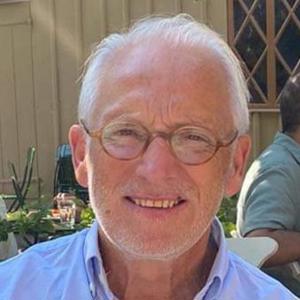Every four years the members of the Church of Sweden elect the leadership of the church for the next four years. The election is managed by the church itself, which has been the case since the year 2000, when the Church of Sweden was separated from the Swedish state.
According to the Church of Sweden Act, which came into force on 1 January 2000, the Church of Sweden is to be democratically structured. The election for the church is based on the elections act, and resembles the general elections in Sweden, but with a few differences – for instance, members aged 16 and older are eligible to vote.
What are the main issues in this year’s church elections? And what is the turnout like? We asked Kjell O Lejon, professor of religious studies at Linköping University and board member of the organisation Frimodig kyrka in the Swedish Church’s parliament.
What are the most important issues in this election?
The election is for three levels in the Church of Sweden: the church board, which is the highest decision-making body at the local level, the parish boards and the church parliament. The various issues are dealt with on different levels.
One large issue that plays out on all levels concerns the politicisation of the church’s governing body. Despite the church’s separation from the state in 2000, the decision-making organisation is still politicised, as several recent academic studies have shown.
For this year’s council a number of petitions and 99 proposals, concerning the environment, diaconia, economy, education and much more.
In the most recent elections, in 2017, the voter turnout was 18.25 per cent – a low figure. What are the democratic implications of this?
That is a low number, and it brings us to the question of democratic deficit. However a small group can fairly represent the views of a large group. My view is that democracy as a model has its limitations when it comes to the church, because the church’s teachings aren’t traditionally based on -isms or ideologies. A vibrant, Christian, ecumenical faith isn’t something you vote on, in my opinion; it follows other paths than elections.
The election has sometimes been called “the forgotten election”. This is mainly down to ignorance, but also a lack of interest in the issues that arise. Studies say that people increasingly do their own spiritual seeking outside the traditional faiths, while traditionally organised churches see declininig memberships. However the church still does a great deal of work in society, especially in terms of diaconia.
Voter turnout in the latest election, in 2017, was the highest since 1934. That’s a considerable increase, about 7 percentage points, over 2013. How would you explain that?
I would say it was mainly because the Social Democrats and the Sweden Democrats ended up in a very public political debate about the election. The former urged people to vote, in order to prevent the latter from gaining influence. The Social Democrats remain the largest nominating group in the church council.
The term political parties isn’t used in the church elections; instead you vote for the nominating group. What does that mean?
Only S, C and SD still have their party names. The first two dominate. Others have other names, but a link to or political background in other parties, such as V, MP, M, L and KD. Other groups have emerged, and which oppose the politicisation of the church, and have formed religious, politically independent nomination groups such as Öppen kyrka – en kyrka för alla, as well as POSK (Partipolitiskt obundna i Svenska kyrkan) and Frimodig kyrka.
Translated by Martin Mirko.
